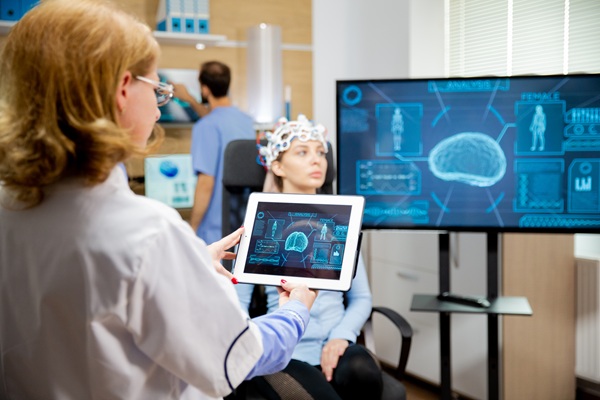Depression Screening from a TMS Psychiatry Clinic

Psychiatrists often recommend depression screening for people who are struggling with depression. Major depressive disorder is a serious mental health issue that negatively impacts how you act, think, and feel. It can take the joy out of all the activities you once enjoyed, and it reduces your ability to function in social settings, at work, or at home.
Essential things you should know about depression screening
The first step towards being free from the symptoms of depression is getting a proper diagnosis. Psychiatrists often start depression screening by performing a physical examination. Some of the symptoms of depression can be caused by physical issues, so a physical is performed to rule that possibility out. Based on the results of the examination, blood tests might be ordered to detect any undiagnosed health issues that might be causing the symptoms.
Once other potential causes have been ruled out, the psychiatrist will interview the patient and ask them to fill out a questionnaire. The questionnaire typically goes over the symptoms of depression and asks the patient to rate how often they experience their symptoms using four levels: several days, every other day, more than half the days, or nearly every day.
Here are some of the symptoms the questionnaire typically goes over:
- A loss of pleasure in doing things or little interest: People with depression often lose interest in hobbies and activities they once enjoyed. People with depression tend to avoid extracurricular and social activities, opting instead to withdraw socially and isolate themselves
- Feeling hopeless, depressed, or down: Persistent feelings of despair or sadness are a significant symptom of depression. People with depression tend to be overwhelmed with negative thoughts, self-perpetuating their low mood
- Sleeping too much, difficulty falling asleep, or trouble staying asleep: Hypersomnia (excessive sleeping) and insomnia (difficulty falling or staying asleep) are also some signs of depression
- Little energy or constantly feeling tired. People with depression typically have low energy. They often lack the drive or motivation to work and take care of their obligations. The feelings of fatigue linger, regardless of how much sleep they get
- Overeating or poor appetite: People with depression often change their eating habits. Some overeat to cope, while others lose their desire to eat. This typically leads to rapid weight loss or gain
- Feeling like a failure or like you have let others down: People with depression regularly deal with feelings like guilt or shame, even if it is entirely irrational
- Difficulty concentrating: People with depression have a hard time concentrating on anything. It hinders their cognitive function, making it harder to make decisions or concentrate. They even have a hard time concentrating on things like watching TV
- Slowed speech and movement: People with depression often have slowed speech or movement to the point that others around them notice it. Some patients experience the opposite and become restless due to depression
- Suicidal thoughts: People with depression sometimes have suicidal thoughts or become fascinated with death. Anyone with suicidal thoughts should seek professional help immediately
Put depression behind you
Our psychiatrist prescribes antidepressants and provides alternative treatments like transcranial magnetic stimulation. Call or stop by our New York location to set up an appointment.
Request an appointment here: https://www.hopetmsofny.com or call Hope TMS and Neuropsychiatric Center at (646) 578-8152 for an appointment in our New York office.
Check out what others are saying about our services on Yelp: Depression Screening in New York, NY.
Recent Posts
Adult ADHD therapy supports individuals navigating challenges with focus, time management, and emotional regulation. While attention deficit hyperactivity disorder, or ADHD, is commonly diagnosed in childhood, its symptoms can persist into adulthood, often interfering with careers, relationships, and daily tasks. Professional therapy offers a structured approach to managing these difficulties and building long-term strategies for…
Transcranial magnetic stimulation, also known as TMS treatment, is an innovative and noninvasive therapy for several mental health conditions. By using magnetic fields to stimulate specific areas of the brain, TMS is an effective treatment for cases where traditional methods have provided little to no relief. It is important to know which mental disorders are…
A TMS doctor focuses on safety, evidence, and practical results when discussing transcranial magnetic stimulation for depression and related conditions. This noninvasive therapy uses targeted magnetic pulses to activate specific brain networks. Strong safety protocols, careful screening, and consistent monitoring provide patients with a clear path to relief while allowing them to maintain their everyday…
A psychiatric evaluation is an assessment of how a person remembers, thinks, reasons, and feels. Series of physical tests and questions are used during the process. Psychiatrists and other mental health professionals can use this type of evaluation to diagnose various mental disorders.Putting patients through psychiatric evaluations enables psychiatrists to diagnose a range of health…


